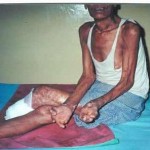Leprosy Treatment Today and Tomorrow — New Study
Despite the decrease in the number of new detected cases for leprosy worldwide, new cases numbering over 250,000 are detected each year, and the eradication of leprosy remains elusive. Currently, there are medical options to prevent leprosy such as BCG vaccination and contact tracing of infants. There are also new future medical options including chemoprophylaxis.
A new study from UMC Rotterdam suggests that leprosy can be reduced significantly through good BCG vaccination and through combined contact tracing strategies, early diagnosis, and chemoprophylaxis, which is the treatment of the infection among household contacts. Furthermore, the study showed that there are effective ways to interrupt and prevent its transmission by continuous chemoprophylaxis and immune- strategies and diagnosing subclinical infections tests.
Some cases of leprosy can be prevented through a known tuberculosis vaccine BCG that reacts to the bacterium that is responsible for leprosy. There are prospects that this vaccine will be replaced with a new one in the future. For those with active contact to patients with leprosy, the infection can be prevented through drugs, but this method has not yet been established as a common practice. Furthermore, a new detective method will be employed but currently undergoing further development study. The method entails detecting leprosy before the appearance of its known symptoms.
The study has tested the effectiveness of the known 7 control activities for leprosy. The results suggest that leprosy incidence will decline with the introduction of a new vaccine replacing the old tuberculosis vaccine that has become ineffective already. However, once the effective detection and early diagnosis will be implemented, leprosy cases should decline significantly.
